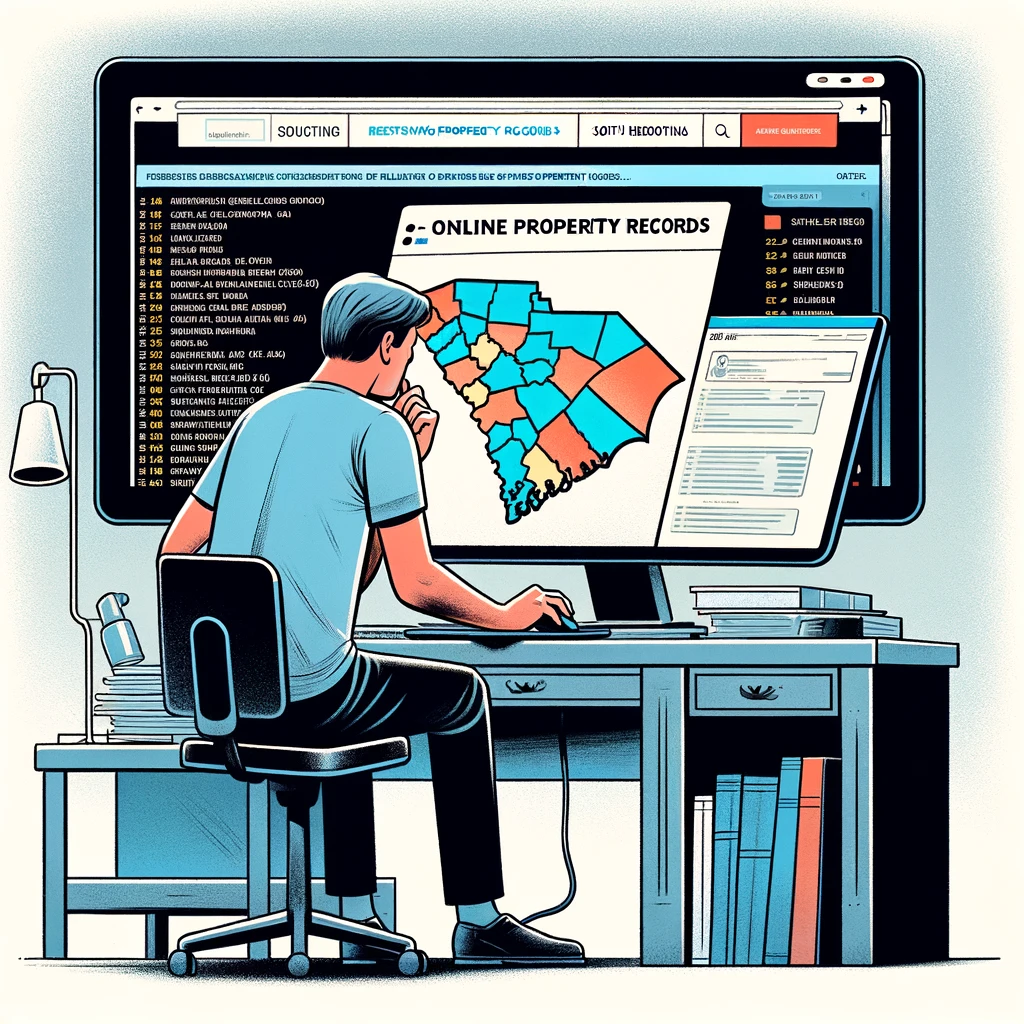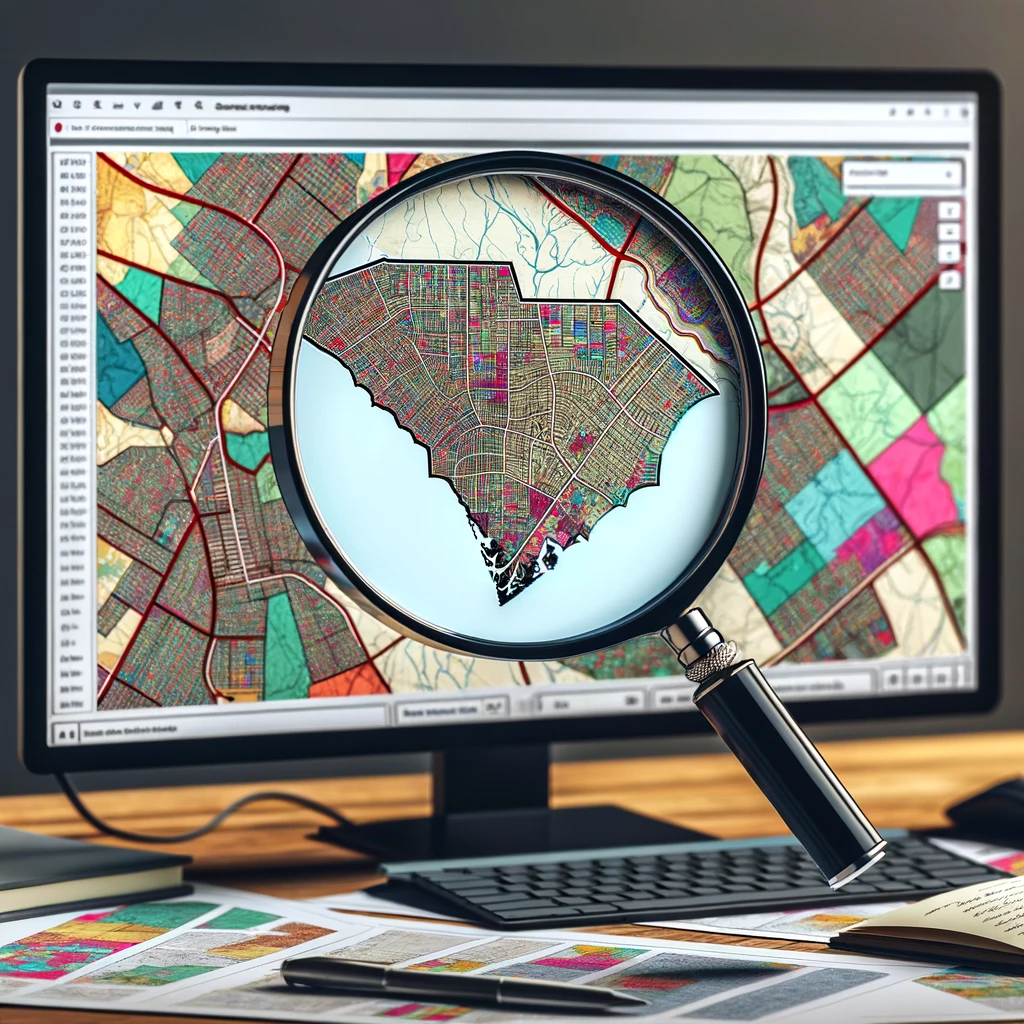In the picturesque state of South Carolina, where the allure of historical homes and beachfront properties never fades, the process of buying a home can be as exciting as it is overwhelming. However, beneath this excitement lurks a crucial aspect often overlooked by many homebuyers: verifying property ownership. The importance of this step cannot be overstated; it’s the shield that protects you from potential real estate scams. In South Carolina, where the charm of its counties is matched by the complexity of its property records, understanding how to confirm that the seller truly owns the property you’re interested in is essential.
This article demystifies the process of verifying property ownership. We delve into the public nature of property records and provide practical advice on how to access and interpret these records. Whether it’s navigating the GIS maps available in most South Carolina counties or searching through the Clerk of Courts Register of Deeds, we’ve got you covered. And for those instances where digital databases might not suffice, we’ll guide you on how to take the extra step of in-person verification. By the end of this read, you’ll be equipped not just with the knowledge but also with the confidence to ensure that your dream home in South Carolina doesn’t turn into a real estate nightmare.

Understanding Public Property Records
When embarking on the journey of home buying in South Carolina, the first step to ensuring a safe purchase is understanding that property ownership details are a matter of public record. This transparency is key to maintaining a fair and trustworthy real estate market. However, the ease of access and interpretation of these records can vary, and knowing where to look is crucial.
1. What are Public Property Records? Public property records are documents that provide essential information about properties. These records include details about the current and previous owners, the purchase price, mortgages, liens, and even property tax assessments. In South Carolina, these records are maintained at a county level and are accessible to anyone who wishes to view them.
2. The Significance of Public Records in Real Estate For a potential buyer, these records are invaluable. They offer a window into the property’s history, helping you confirm the legitimacy of the seller’s claim to ownership. By reviewing these records, you can also uncover any potential legal issues, such as unresolved liens or disputes, which could affect your ownership in the future.
3. How to Access Public Property Records in South Carolina Most counties in South Carolina have embraced digital solutions, offering electronic databases that can be accessed online. These databases allow you to search for property records using various criteria, such as the owner’s name, address, or parcel number. For counties without online databases, accessing these records would require a visit to the local county office, where public terminals or assistance from county staff might be available.
4. Tips for Navigating Online Records Navigating these online databases can be straightforward, but it’s important to be precise with the information you input. Small errors in spelling or format can lead to missing information. If you’re uncertain about the details, it’s advisable to use broader search criteria or seek help from a real estate professional or the county office staff.
5. The Role of Real Estate Professionals While these records are public and accessible, interpreting them can sometimes be challenging. This is where real estate professionals can provide valuable assistance. They understand the nuances of these records and can help you extract and interpret the information relevant to your purchase.
Remember, taking the time to understand and access these public property records is not just a step in the home-buying process; it’s a crucial measure to protect yourself from potential fraud and ensure a secure investment in South Carolina’s vibrant real estate market.

Using GIS Maps for Ownership Verification
Geographic Information System (GIS) maps are a powerful tool in the realm of property verification, especially in South Carolina, where most counties provide these maps online. Understanding how to use these maps can significantly enhance your ability to verify property ownership accurately.
1. What is a GIS Map? GIS maps integrate geographical features with data attributes, allowing users to view, understand, question, interpret, and visualize data in many ways. In the context of property ownership, these maps typically include boundaries, parcel numbers, and sometimes even details about the owner.
2. Accessing GIS Maps in South Carolina Most South Carolina counties offer GIS maps through their official websites. These maps are often user-friendly and designed to be accessible even to those with basic technical skills. The key is to locate your county’s GIS mapping tool via their website or through a simple internet search.
3. Interpreting GIS Map Data Upon accessing a GIS map, you can search for a property by address, owner’s name, or parcel number. The map will display the property along with essential information such as property boundaries and adjacent properties. Some GIS maps also provide links to related property documents, which can be invaluable in verifying ownership.
4. The Benefit of Visual Verification One of the significant advantages of GIS maps is the visual verification they offer. By providing a clear depiction of property lines and layouts, these maps can help dispel doubts about property extent and ownership boundaries, which is vital in avoiding disputes post-purchase.
5. When to Seek Professional Help While GIS maps are a great resource, interpreting some of the more technical aspects of these maps can be challenging. If you find yourself overwhelmed, consider consulting with a real estate professional or a surveyor, especially for properties with complex boundaries or unusual features.
Using GIS maps is a proactive step towards ensuring that the property you’re interested in is precisely what it’s claimed to be. It’s a vital tool in your home-buying toolkit, providing clarity and confidence as you move closer to making one of the most significant investments of your life.

Navigating the Register of Deeds
In South Carolina, the Register of Deeds plays a pivotal role in the home buying process, especially in confirming the legitimacy of property ownership. Understanding how to navigate this resource is crucial for any prospective homebuyer.
1. Role of the Register of Deeds The Register of Deeds office holds official records regarding property ownership, including deeds, mortgages, and easements. These documents are legal proofs of ownership and are essential in any property transaction.
2. Accessing the Register of Deeds in South Carolina Most South Carolina counties have digitized their records, making them accessible online through the Clerk of Courts’ website. These digital databases provide a convenient way to search for and view property documents.
3. Searching for Ownership Documents When searching the Register of Deeds, you can use various criteria such as the owner’s name, address, or parcel number. It’s important to be as accurate as possible with your search terms to ensure you find the correct documents.
4. Understanding Property Deeds Property deeds are the key documents to look for. They contain critical information, including the legal description of the property, the name of the owner, and the history of ownership transfers. Reviewing these deeds gives you a clear picture of the property’s ownership history.
5. In-Person Visits for Older Records While many records are available online, some older documents may only be accessible in person at the county office. If you’re dealing with a property that has a long history or has not changed hands in many years, a visit to the Register of Deeds office may be necessary.
Navigating the Register of Deeds is a critical step in verifying property ownership. It not only provides peace of mind but also ensures that your investment is protected from any legal complications that might arise from unclear or disputed ownership.

Electronic Databases vs. In-Person Verification
In the digital age, South Carolina’s commitment to providing electronic access to property records has significantly streamlined the home buying process. However, understanding when to rely on electronic databases and when to opt for in-person verification is key to a comprehensive property ownership check.
1. The Convenience of Electronic Databases For most modern property transactions in South Carolina, electronic databases are the first stop. They offer quick access to a wealth of information, including ownership details, property boundaries, and legal documents. These resources are invaluable for conducting initial research and are typically sufficient for most property verifications.
2. Limitations of Online Resources While electronic databases are comprehensive, they may not always have the most up-to-date or complete information. Sometimes, records, especially older ones, might not be digitized, and therefore, not available online.
3. When to Opt for In-Person Verification If your online search yields incomplete results or if you’re dealing with a property that has a long or complex history, an in-person visit to the county office is advisable. There, you can access archived documents and seek assistance from county staff, who can provide insights that might not be evident from online records alone.
4. Balancing Convenience with Diligence While electronic databases provide convenience and speed, balancing this with the thoroughness of in-person checks ensures a more robust verification process. It’s about finding the right mix of technology and traditional research methods to suit your specific property’s context.
5. Ensuring a Secure Property Transaction By utilizing both electronic and in-person resources, you can have greater confidence in your property transaction. This dual approach minimizes the risk of overlooking critical details that could impact your legal ownership or lead to future disputes.
In summary, while electronic databases have revolutionized property verification in South Carolina, there are instances where the traditional method of in-person verification becomes necessary. Understanding how to use both effectively is the hallmark of a savvy homebuyer.
Conclusion
In conclusion, verifying property ownership in South Carolina is a multifaceted process that demands attention to detail and a willingness to utilize various resources. From accessing user-friendly electronic databases to sometimes needing to step into a county office for in-person verification, each step plays a crucial role in ensuring a secure property transaction.
Remember, whether it’s interpreting GIS maps or navigating through the Register of Deeds, the effort you put into verifying property ownership is a direct investment in your peace of mind and the security of your future home. By being thorough in your research, you not only protect yourself from potential fraud but also lay the groundwork for a solid and undisputed claim to your new property.
Buying a home in South Carolina, with its rich history and diverse landscapes, is a dream for many. Make sure your dream home journey is safe and secure by diligently verifying property ownership. With the right approach and tools, you can confidently step into homeownership, secure in the knowledge that the property you’re buying is exactly what it appears to be.

